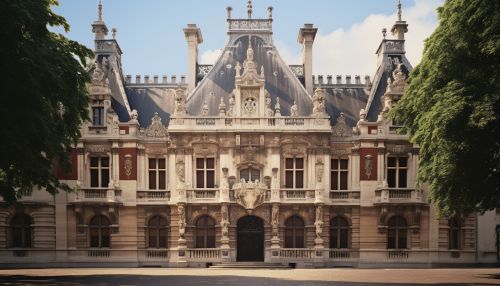Higher education in France
Overview
Higher education in France is organized in three levels or grades which correspond to those of other European countries, facilitating international mobility: the License and License Professionnelle (bachelor's degrees), and the Master's and Doctorate degrees. The French higher education system includes universities and other institutions called "grandes écoles". The "grandes écoles" are higher education establishments outside the mainstream framework of the public universities system.


History
The history of higher education in France dates back to the 12th century when universities began to be established in Paris. The University of Paris, established in the middle of the 12th century, is often considered the first university in the sense of higher education system.
Universities
Universities in France are comprehensive institutions composed of several faculties covering various disciplines. They are public institutions, enjoying a high degree of autonomy. Universities are responsible for the study programmes they provide, and they have significant freedom in defining their academic and research policies.
Grandes Écoles
The "grandes écoles" are highly selective, elite schools that have traditionally produced much of France's high-level management and executive corps. They include several types of institutions: the prestigious and highly selective "écoles normales supérieures", the "écoles supérieures de commerce" (business schools), the "écoles d'ingénieurs" (engineering schools), and a range of other institutions providing specialized courses in a wide variety of subjects.
Admission
Admission to universities and "grandes écoles" is selective. It is based on the student's previous academic record and performance in a competitive examination. The "baccalauréat" (equivalent to A-levels in the UK or high school diploma in the US) is the main qualification required for admission to undergraduate studies.
Degree Structure
The French higher education system is structured around three main cycles: the License cycle (equivalent to a bachelor's degree), the Master cycle (equivalent to a master's degree), and the Doctorate cycle (equivalent to a PhD).
Research
Research in France is conducted in universities as well as in independent research institutions. France has a strong tradition of research and development, and it is one of the world's leading countries in terms of the number of research papers published and patents registered.
Internationalization
France is a popular destination for international students, thanks to its rich cultural heritage, high quality of education, and the widespread use of English in its universities. The French government has implemented various policies to attract international students and researchers.
Challenges and Reforms
The French higher education system faces several challenges, including the need to improve student success rates, to increase the international attractiveness of French higher education, and to ensure the quality and relevance of research. Various reforms have been implemented in recent years to address these challenges.
